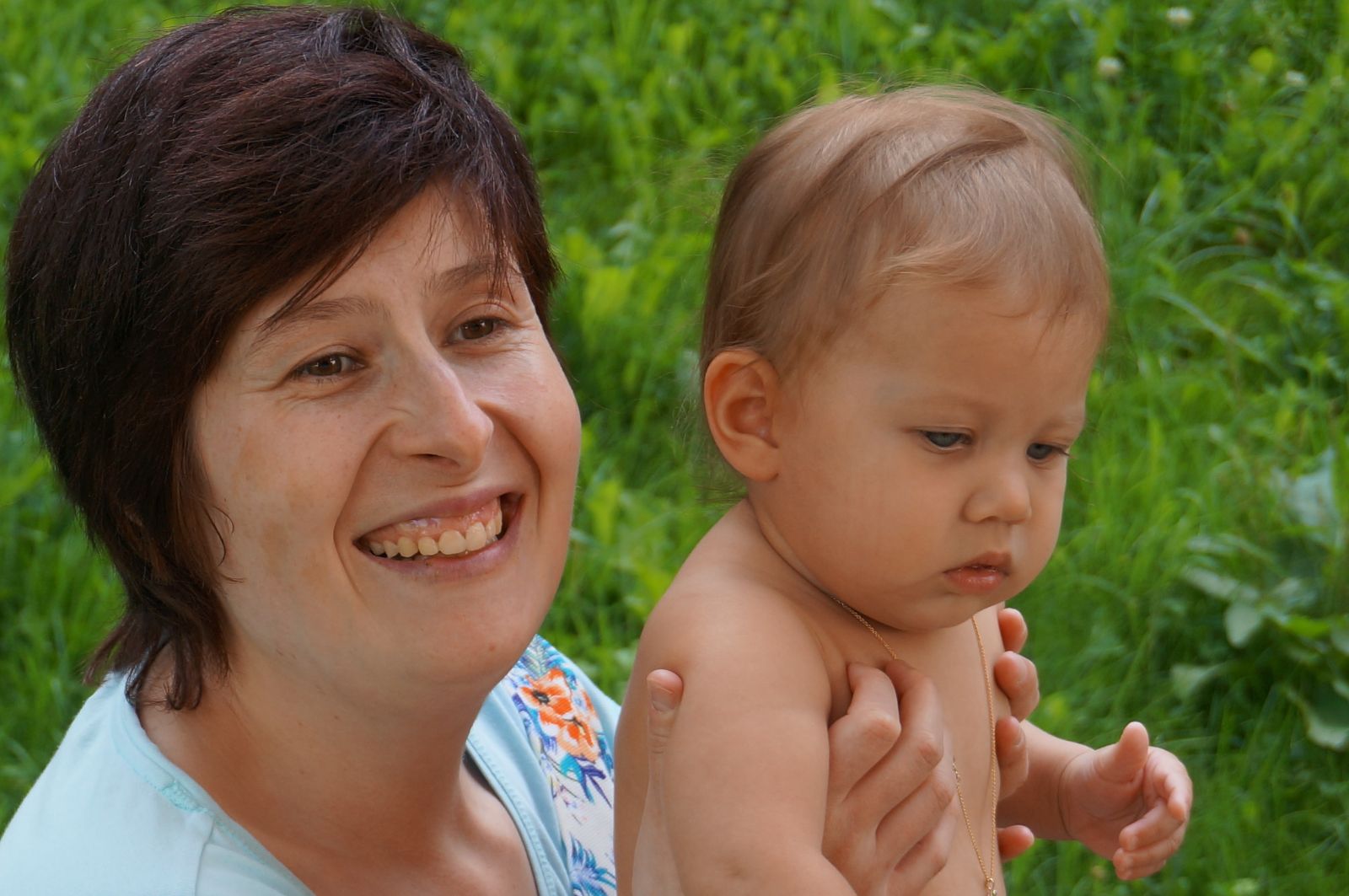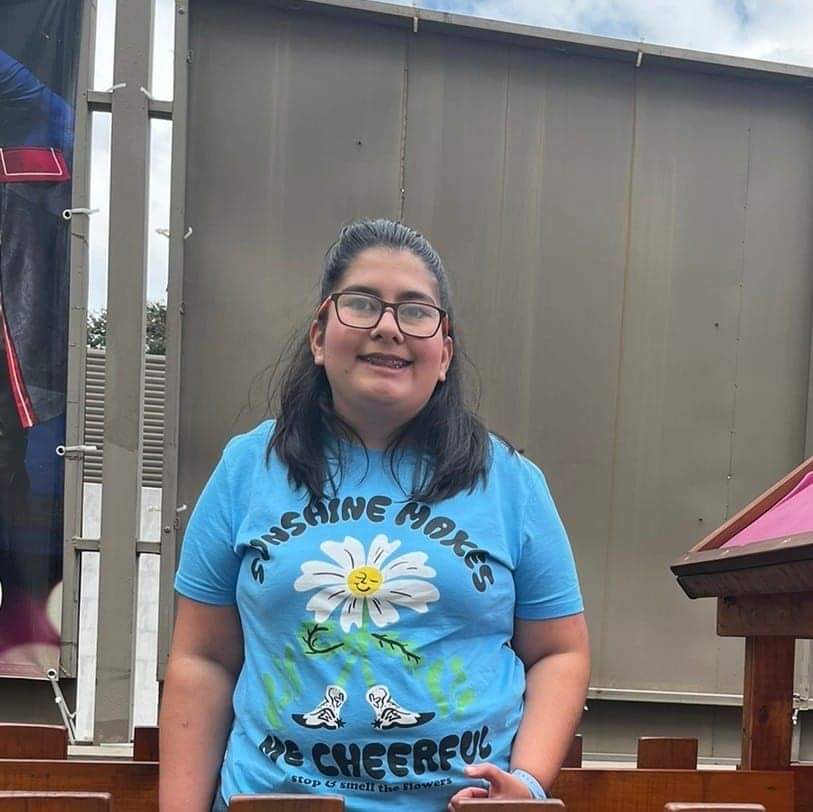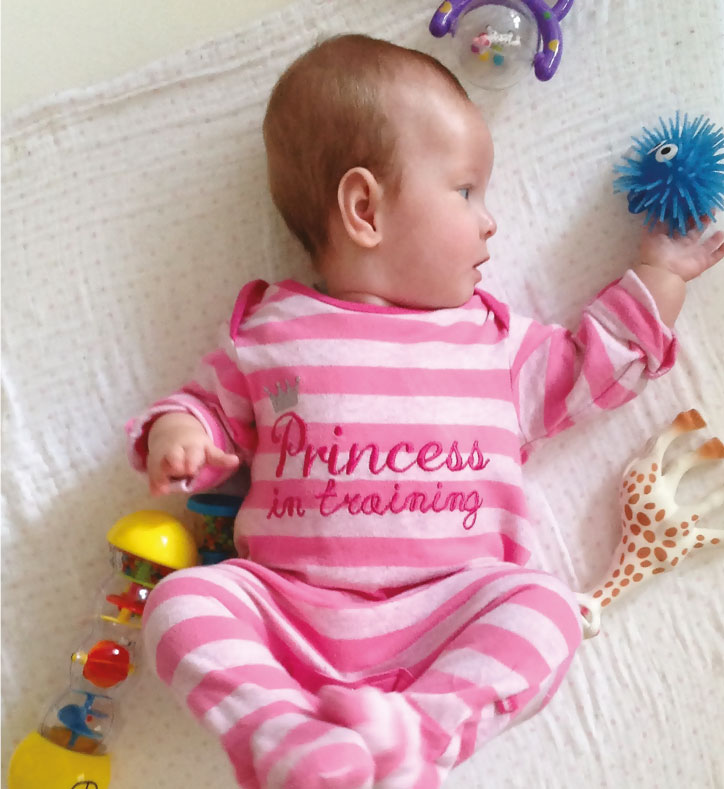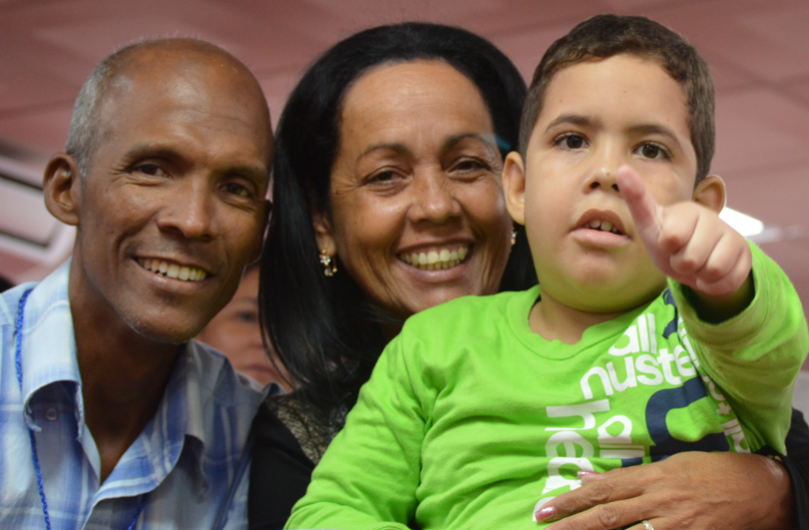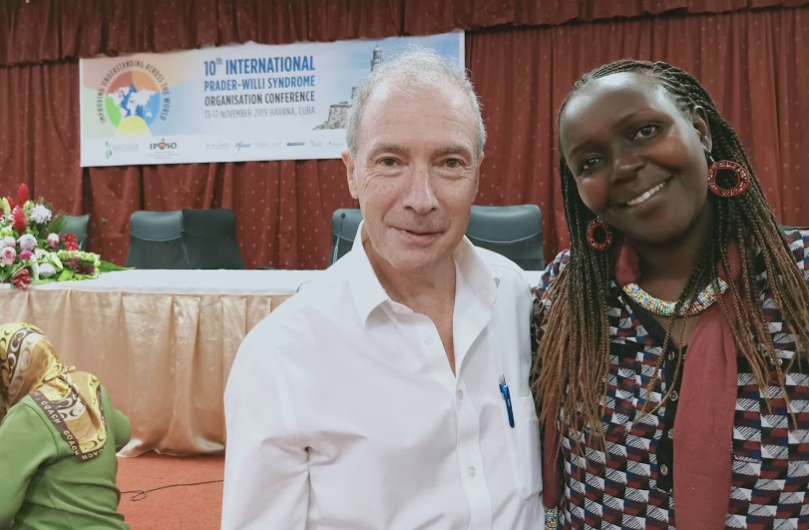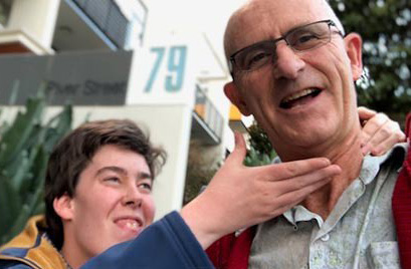New Parents
Learning that your new baby has Prader-Willi syndrome (PWS) will be a huge shock. Being given a label that you’ve probably never heard of before can turn your world upside down in an instant. There are many questions you will want answers for, and the first will be “Why?” Some questions we can answer, and some, like “Why?” may always remain unanswered, but the first thing to remember is that this is still your beautiful baby who needs you now, more than ever.
No-one’s fault
The second thing to remember is that it was not your fault, neither the mother, nor the father, nor was it anything you did during your pregnancy. There is, as yet, no known reason why it should be your baby, or anyone else’s. Scientists can tell you that the developing embryo failed to pick up a piece of genetic material that would complete the 15th chromosome, but not why.
Perhaps you are the parents of an older child and have just been given the diagnosis of PWS in answer to all your years of not understanding why your son or your daughter has been different from your other children, or different from his or her peers. Going to the web can always provide answers, but most websites are blunt, to the point, factual, and nearly always list worst-case scenarios. In time, you will also want to know more of the facts and details, but for now you need to come to terms with the changes this diagnosis will bring to you, your family, your child, and your life.
Low muscle tone
Babies with PWS seem quite fragile, with low muscle tone and a weak cry, they seem to have come into the world unprepared for life. Low muscle tone is just part of the syndrome and is caused by a low amount of growth hormone in the system; this will improve in time, and there is a medical treatment to improve growth and muscle tone which your child may be eligible to receive in your country (Growth Hormone treatment). This low muscle tone is also the reason why your baby may need to be tube-fed as this is the best way to make sure he, or she, receives the nutrition needed. It may look a little frightening, but your baby won’t mind, and having the milk delivered straight to the stomach means it is easier and less stressful. Tube-feeding will continue for some time after you have left the hospital with your baby.
Reaching milestones
As your baby grows and develops under the guidance of professional care and the love and nurturing of his or her family, there will be new challenges, but there will be nothing you and your child can’t overcome together. Your child will reach his or her milestones, it may be a little later than other children, but they will learn to walk, talk, laugh and cry, just like everyone else. There probably will be some developmental delay, but there are excellent therapists, teachers, and professionals who can help and guide you. Your child may need extra support while at school, but that’s ok too. Most students do well with reading, writing, computer studies, with some doing exceptionally well with fine motor skills (jigsaw puzzles, knitting, clay-modelling etc). Ok, so they might not have a career in the specialist field you had set your heart on, but they will achieve at their own level of competence. Be proud of them, encourage them, provide practical support.
PWS characteristics aren’t “bad behaviour”
As your child grows older, so you will start to notice many of the PWS characteristics including behavioural challenges, food-seeking, and others. These are the two main issues that will face them for life. They can not help this, but you can. Learning to differentiate between your child’s own personality, and the characteristics of PWS is important. PWS characteristics can often cloud things, leading you to wonder whether your child is doing all these “bad” things ‘on purpose. They’re not. It is the syndrome that is driving this behaviour and it is the syndrome that is clouding the issue. Learning all you can – when you are ready – about PWS will stand you in good stead as your child’s major advocate all of his or her life.
Gather your network together
You will need to gather around you a good network of professionals; opportunities for visiting occupational therapists, nutritionists, paediatricians, specialists, will be given to you – take advantage of everything to help you, your family, your child. IPWSO is also here to help you. We can put you in touch with other families in your country, send you information, counsel, advocate, or just talk things through. There will be times of despair, but there will also be times of great joy.
After the Diagnosis, Relief and Acceptance
Having a diagnosis can bring relief. Being able to put a name on the multitude of symptoms your child has lived with since birth brings relief.
< Back to Information for Families
International Community
IPWSO was established so that PWS associations, families, clinicians and caregivers around the world could exchange information and support and have a united global voice under one umbrella.
Information for Medical Professionals
The latest medical and scientific research and information, plus guides into common medical issues affecting people with PWS.


